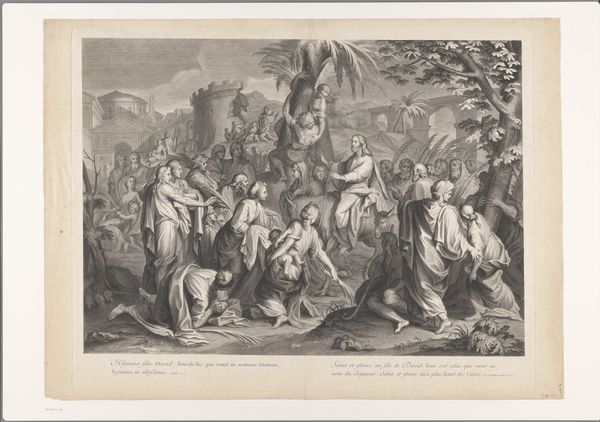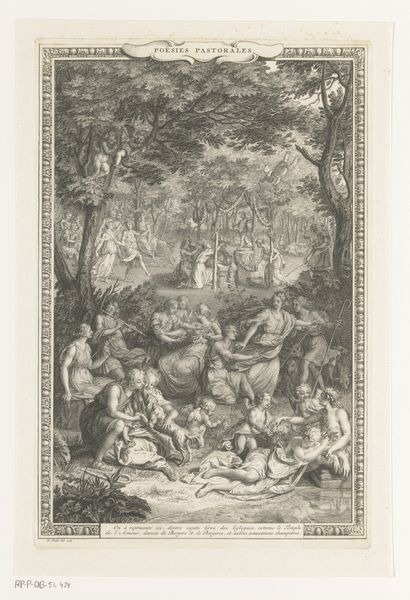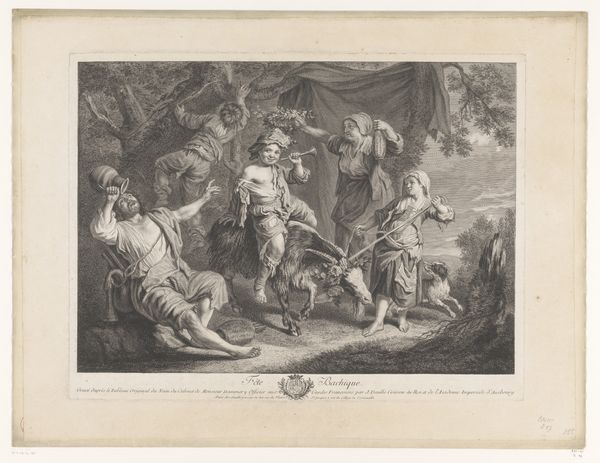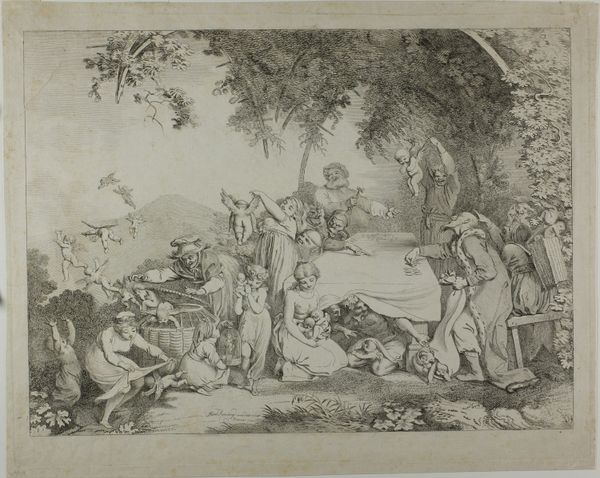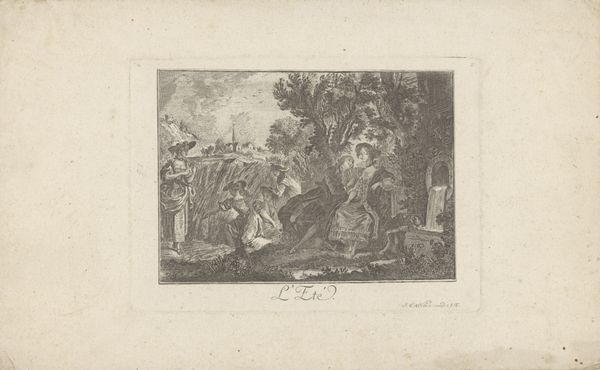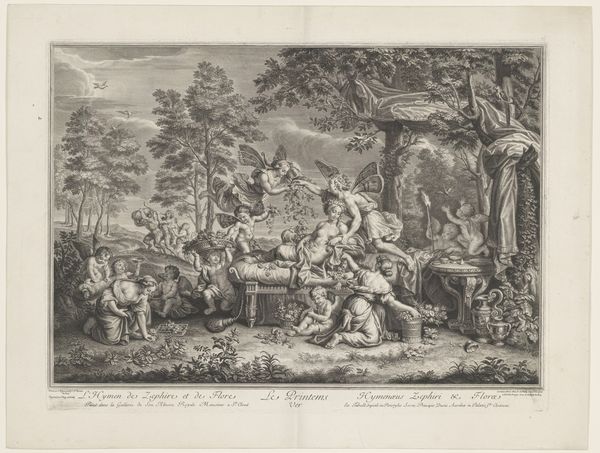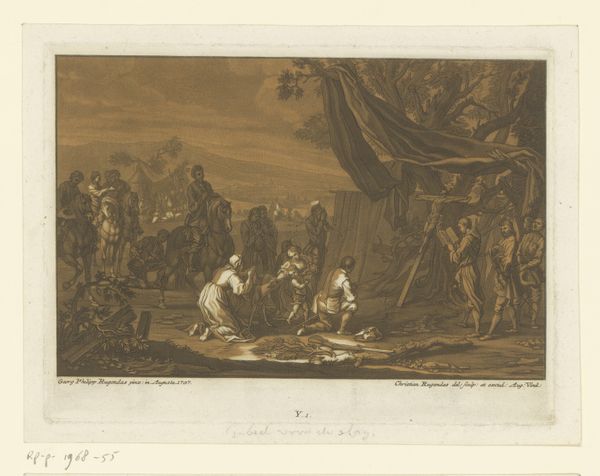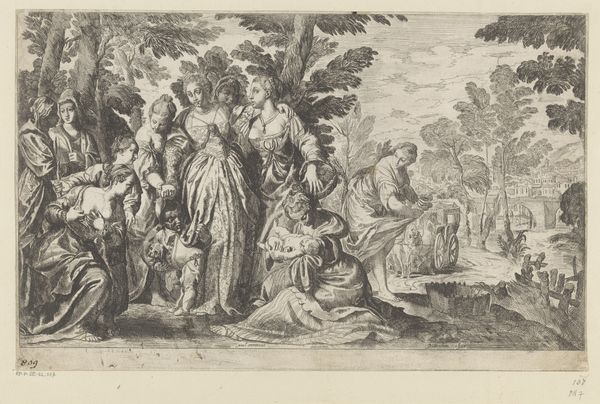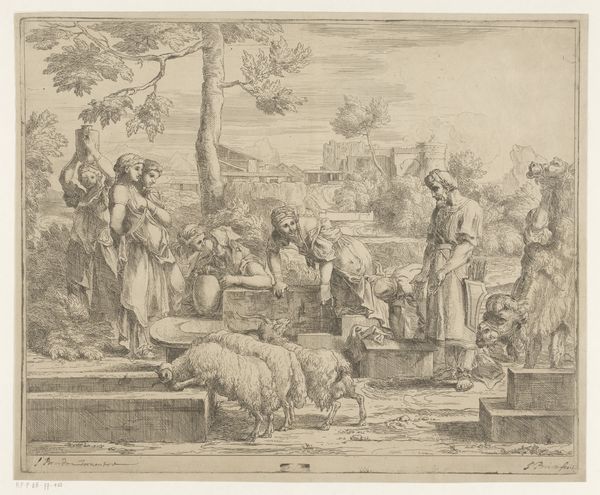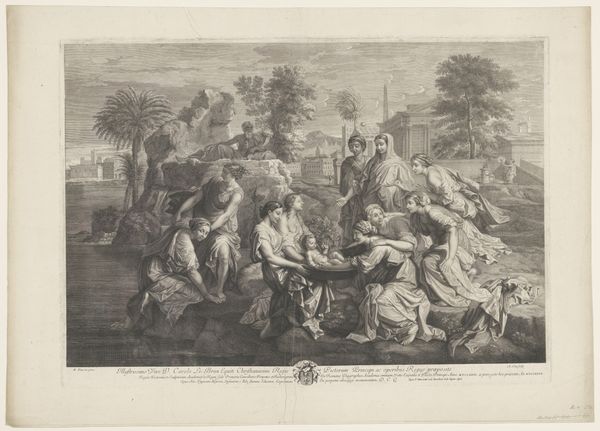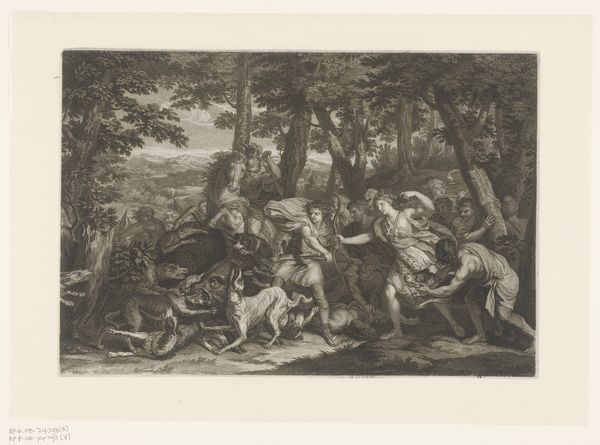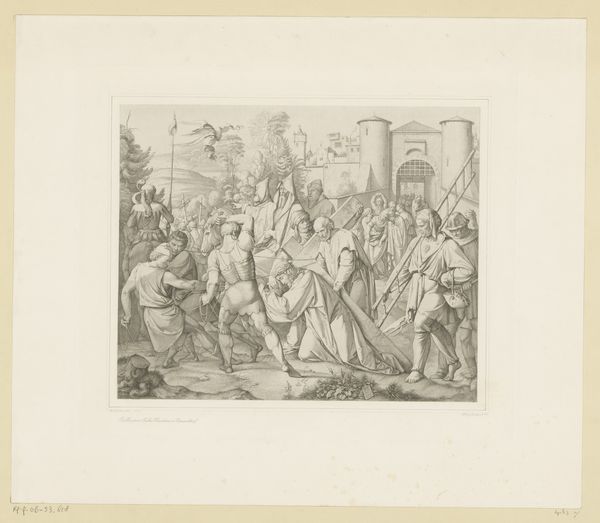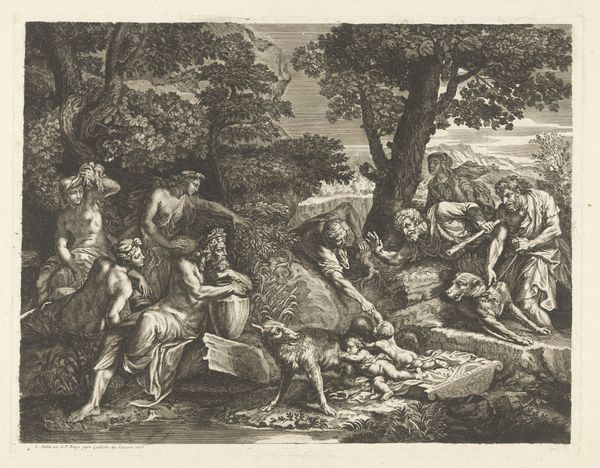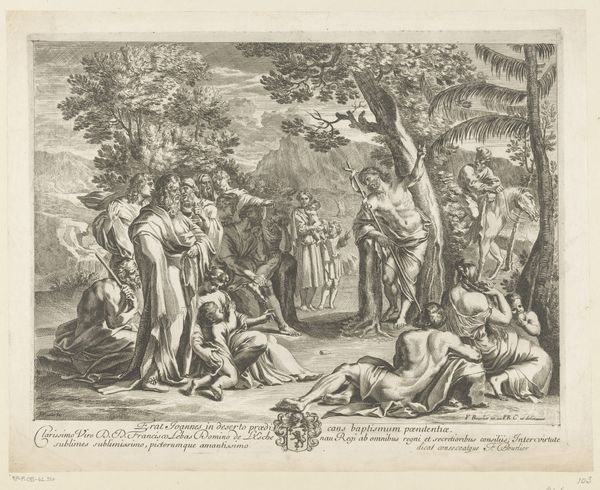
engraving
#
narrative-art
#
baroque
#
old engraving style
#
figuration
#
line
#
history-painting
#
engraving
Dimensions: height 451 mm, width 718 mm
Copyright: Rijks Museum: Open Domain
Louis Surugue created this print, "Afdaling van Aeneas naar de onderwereld," which translates to "Descent of Aeneas to the Underworld," sometime between 1686 and 1762. The print visualizes a scene from Virgil’s epic poem, The Aeneid, but it also exists within a web of cultural and social meanings specific to Surugue's time. During the 17th and 18th centuries, European art was deeply intertwined with the revival of classical antiquity, yet this interest was far from neutral; it was a tool for constructing identity, nationhood, and power. We see this in the composition, where Aeneas, guided by the Sibyl, navigates a landscape populated with figures from classical myth. Consider how Surugue uses the classical world to talk about his own. It is important to ask, whose stories get told and whose get left out? What does it mean to depict classical myths during the Enlightenment? Surugue's "Descent" is not just an illustration; it's a mirror reflecting the values and power structures of his society.
Comments
No comments
Be the first to comment and join the conversation on the ultimate creative platform.
